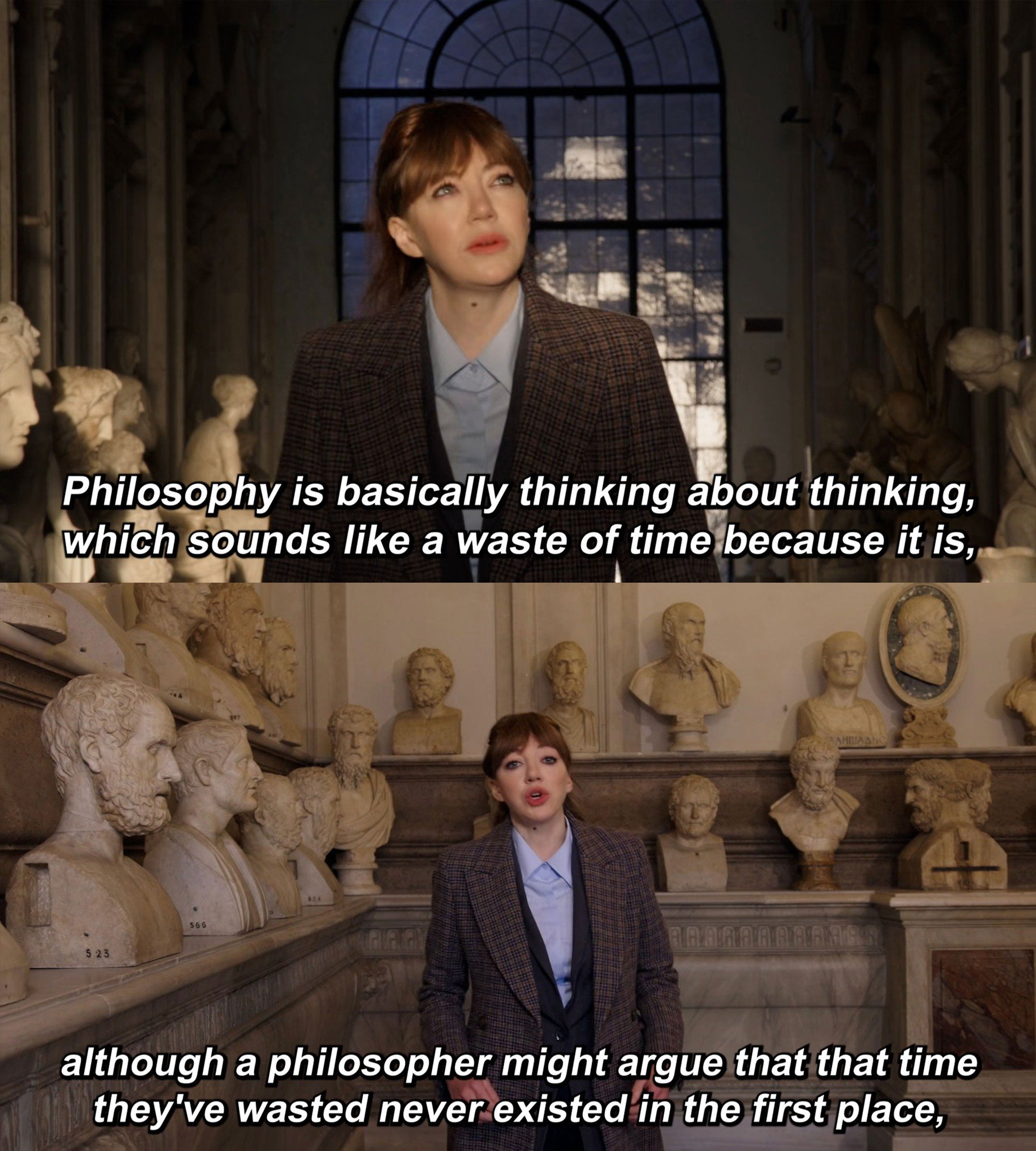this post was submitted on 08 Oct 2024
802 points (98.1% liked)
memes
10450 readers
3444 users here now
Community rules
1. Be civil
No trolling, bigotry or other insulting / annoying behaviour
2. No politics
This is non-politics community. For political memes please go to !politicalmemes@lemmy.world
3. No recent reposts
Check for reposts when posting a meme, you can only repost after 1 month
4. No bots
No bots without the express approval of the mods or the admins
5. No Spam/Ads
No advertisements or spam. This is an instance rule and the only way to live.
Sister communities
- !tenforward@lemmy.world : Star Trek memes, chat and shitposts
- !lemmyshitpost@lemmy.world : Lemmy Shitposts, anything and everything goes.
- !linuxmemes@lemmy.world : Linux themed memes
- !comicstrips@lemmy.world : for those who love comic stories.
founded 1 year ago
MODERATORS
you are viewing a single comment's thread
view the rest of the comments
view the rest of the comments

Eh, I dunno, I think philosophy can be pretty cool.
Philosophy at it's core can be cool, informative, and even critical.
Most philosophy is fancy bullshit.
Just like anything else creative with a low barrier to entry, 90% is crap. The rest may be corn
Although, that corn may simply be undigested crap.
the math/philosophy overlap in set theory/logic makes me uneasy. the closer you get to it, the more the idea that "math is objective" starts to fade away. also pretty surreal to be learning philosophy/taking things as given in a math class. especially because you spend a lot of time proving that certain things are true, but you don't ever say what it means for something to be true.
All roads lead to Rome.
Math and science all have a philosophical core, it's just that most of the time you don't need to question it, so it's easy to forget about it. Which is fine
We already know that math isn't objective due to Godel's incompleteness theorem
how does that follow from Gödel's incompleteness theorems?
Godel's second theory of incompleteness states that a formal system cannot prove its own consistency
I think that's as close as you can get to "math is not objective"
before gödel’s theorems can be formally stated, you have to make a lot of assumptions about axioms, and you have to pick which kinds of logical rules are “valid”, etc. and that all feels way more dicey to me than the actual content of gödels theorems.
i definitely agree that gödels theorems can help to undercut the idea that math is this all knowing, objective thing and there’s one right way to do everything. but to me personally, i feel like the stuff that’s very close to the foundations is super sketchy. there are no theorems at that level, it’s just “we’re going to say these things are true because we think they are probably true”.
Indeed, and the reason why I think the incompleteness theorems are the nail in the coffin, is that otherwise you could at least prove that certain sets of axioms worked together, then you'd have some basis for the math you use, even if it was self-referential
But it turns out that is impossible, and what we choose as our foundation for the math we use is pretty much arbitrary. Although of course we have reasons to use what we use
Of course and then again is being even real
Not that I disagree, but logic and mathematics have a rocky relationship. We thought we could marry them forever with set theory, but when they asked if anyone objected, Bertrand Russel stood up.